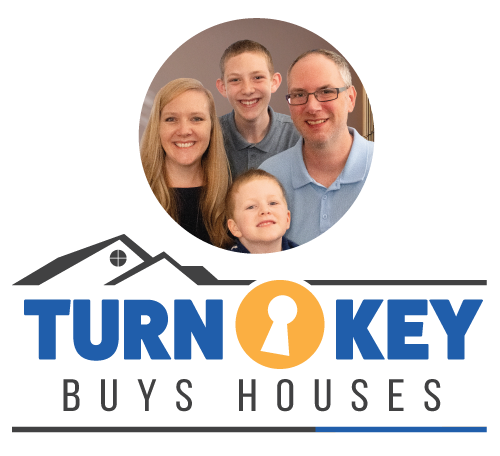
BLOG
Should You Sell Your Florida Home Off-Market or List on the MLS?
Pros, Cons, and a Smart Way to Sell Fast
Thinking of selling your Central Florida home? We know—it can feel exciting yet overwhelming. Between figuring out timelines, prepping the house, and deciding whether to go the traditional route or try something different… it can be a lot.
Maybe you’re hoping for a quick closing because of a job relocation or family situation. Maybe your property needs some TLC and it’s not a good time for that. Or maybe getting the highest return possible for your Central Florida property is your main goal, and you don’t want to leave money on the table.
We get it! Whatever your situation, you have options.
Let’s break down the two most common ways to sell your house in the Orlando area: listing it on the MLS vs. selling it off-market to a local cash buyer.

Listing on the MLS
This is the traditional route most people think of when they decide to sell their home. You hire a licensed real estate agent, list your property on the Multiple Listing Service (MLS), and hope to attract strong offers from buyers actively shopping online.
If getting top dollar for your Central Florida home sale is your #1 priority, and your home is in great shape and you're not in a rush, this is usually the route that leads to the highest possible sale price—especially when buyers start competing. But it’s not the right fit for every situation. Let's explore the pros and cons of listing your home on the market in Seminole County, Orange County, Lake County, or Volusia County, Florida.
✅ Pros of listing on market:
- Maximum exposure.
Your Florida home will appear on Zillow, Realtor.com, and top real estate sites browsed daily by thousands. If it’s in great shape, this approach gets you maximum buyer exposure.
- You may get multiple offers.
In a hot Central Florida housing market, especially in areas like Orlando, Lake Mary, Winter Park, or Altamonte Springs, buyers may compete for move-in-ready homes. If yours checks the right boxes, you could spark bidding wars that push up the final sale price. - A licensed agent helps guide you.
A good real estate agent helps price your home right, market it well, host open houses, negotiate offers, and manage paperwork—removing stress and simplifying the home-selling process.
❌ Cons of listing on market:
- Agent commissions cut into your bottom line.
Real estate agents can be very helpful and sometimes instrumental in your property sale, but good help comes with a price tag. Most real estate brokerages charge around 6% of the sale price, often split between the buyer’s and seller’s agents. In today's market, sometimes the buyer pays for their own agent, but often the seller may need to cover both sides, especially if the buyer does not have enough money for a down payment on a mortgage, closing costs, plus agent compensation.
As the sale price increases, the agent compensation becomes a staggeringly high amount for the time spent on your sale. According to the National Association of Realtors (NAR), the average real estate transaction requires approximately 40 working hours from the agent between pre-listing activities, marketing, client communications, showings, coordinating inspections, and pre-closing activities. Let’s do the math, factoring a 6% agent compensation cost: - Selling your $200,000 property - That’s around $12,000 in agent commissions between the buyers and sellers agents, plus typical home seller closing costs. At an average 40 hours per transaction, that’s about $300/hr.
- Selling a $500,000 house - You’ll pay around $30,000 in agent compensation, roughly $750/hr.
- Selling your $800,000 property - That would cost you nearly $50,000 in commissions, which equals about $1,250/hour.
- Note that as the sales price increases, there may be some added effort or costs covered by your agent: think drone footage and twilight photography.
- Your house always has to look its best.
Buyers expect homes to shine. Typically you’ll want to declutter, deep clean, repaint, and maybe even replace worn carpet or fix minor repairs. Some sellers spend thousands just to prep for showings. And then you have to keep it that way until it sells. It’s not required, but if you are paying tens of thousands in agent compensation just to list on the MLS, you’ll want to put your best foot forward for a high priced sale. - Open houses and strangers walking through.
Your agent may suggest holding several open houses or private showings — and that’s a good thing! They’re working to give your home maximum exposure and make it as easy as possible for buyers to see it when they’re out shopping. That also means you’ll need to be flexible and ready to leave on short notice. If you’ve got pets, kids, work-from-home schedules, or tenants renting your property, this can get tricky. It all depends on your situation and your goals. - Inspections, appraisals, and uncertainty.
After accepting an offer, most home buyers are putting a little money down and getting a mortgage for the balance. Their lender will usually require an appraisal and inspection. If issues come up (and they often do, even on new construction!), you may be asked to make repairs or lower the price. Sometimes deals fall through entirely.
Ever heard of “pending” or “under contract” turning into “back on market”? Yep—this is why.
Bottom line, listing on the MLS can be highly effective yet costly for your property sale. You can try to negotiate a lower commission—but keep in mind, the more you cut into your agent’s paycheck, the less incentive they have to go the extra mile for you.
In some situations, especially if your property is in great shape and you want top dollar, hiring a real estate agent makes total sense.
But for others, paying $12,000 to $50,000 (or more!) in commissions can eat away at your profit—especially if the house needs work, has tenants, or isn’t ideal for constant showings on short notice. In those cases, listing on the market might not be your best move.
Selling Off-Market for Cash
An
off-market sale means selling directly to a buyer (usually a real estate investor or home-buying company like ours) without listing on the MLS. It’s simple, direct, and much faster than the traditional route, but doesn't typically get you the highest sales price. Let's explore the pros and cons below:
✅ Pros of selling off-market:
- Speed and certainty.
Off-market buyers (like us) often pay with cash. That means no banks, no appraisals, no financing hang-ups. We can close in as little as 7 days—or on your schedule. - Skip the repairs. Seriously.
Whether your Florida home needs a new roof, an AC unit, or you’re just not up for touching up chipped paint, it’s okay. Most cash buyers will buy houses in any condition throughout Greater Orlando—areas like Altamonte Springs, Winter Park, Eustis, or Oviedo. - No commissions, no fees.
Since most cash buyers are dealing with you directly, you don’t have to pay realtor commissions. Some investors, like us, will even pay your closing costs, so what we offer is what you walk away with. That means more money in your pocket. - No showings, no open houses, no hassles.
No need to deep clean. No relying on your tenant's housekeeping habits for your best price (we see past all that). No need to kick your tenants out every time someone wants to walk through. Just one visit from us and you’re done. - Flexible closing timeline.
Need to move fast? Most cash buyers can close quickly. Our fastest closing was in 24 hours. Typically we can close in 2 weeks. Need a little more time to find your next place or to give your tenants notice? No problem—we’ll work with your schedule.
❌ Cons of selling off-market:
- You likely will not get top retail price.
Cash buyers typically offer less than full market value—some more than others, but when you factor in saved commissions, repairs, and holding costs, the net amount may be surprisingly competitive. Especially if time and convenience are just as important as price. - CAUTION: Watch out for wholesalers who don’t actually plan to buy your house.
Here's what to look for! Some "cash buyers" don’t have the funds to close themselves. Instead, they tie up your property with a purchase contract and then try to resell that contract to another investor for a quick profit. That often means more showings from other buyers, uncertain timelines, and a higher chance the deal falls through if they can’t find someone else to buy it.
Bottom line: with wholesalers, there might not be a guaranteed sale, and you might end up back at step one. Be sure to look at the purchase offer terms closely. Ask your cash buyer if they are obligated to purchase, and have them show you exactly where the purchase offer states whether or not they can assign the contract and if they are obligated to close. - Cash sales are typically not ideal for fully renovated homes.
If your property is brand new or recently remodeled, listing with an agent will likely fetch the highest price—after the extra fees, time, and work.

So... What's the Smartest Way to Sell your Central Florida Property?
There’s no one right answer:
- If you want top dollar, have time to wait, and don’t mind putting in some work, listing with an agent might be the best way to go to get top dollar for your home sale.
- But
if you want a
quick, simple sale with no repairs, no fees, and no surprises, then an off-market deal could save you time, stress, and upfront money.
✅
Ready to see what your home might be worth off-market?
Reach out today for a no-pressure, no-obligation offer. Your home. Your timeline. Your terms.
If you're thinking about selling
quickly
or
quietly, call or text us at (407) 300-9446
for a fast, fair cash offer and FREE closing.
*We are not licensed real estate professionals. This is not to be construed as real estate advice.


